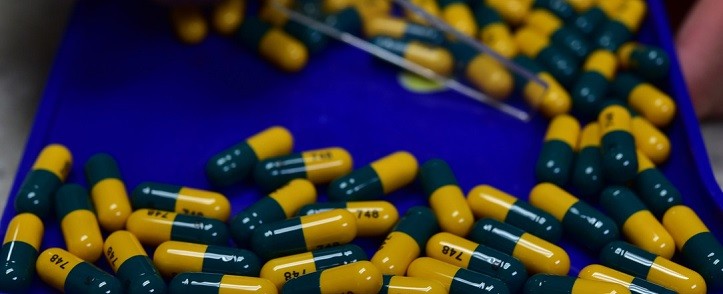
Africans Indicted for Stealing, Selling U.S.-Funded Malaria Drugs on the Black Market

Two Congolese men have been federally indicted for stealing loads of malaria drugs sent to Africa by American taxpayers and selling them on the black market. It marks the latest in a series of scandals to rock a multi-billion-dollar U.S. government program that provides Africa with heaps of malaria drugs every year. For nearly a decade, millions of dollars in malaria drugs are stolen annually and sold on the black market. The government agency that operates the program, U.S. Agency for International Development (USAID), knows about it yet continues to fund it. In fact, more than five years ago a mainstream newspaper published a scandalous exposé (“Thieves Hijacking Malaria Drugs in Africa”) detailing how organized networks steal large quantities of donated malaria drugs that end up for sale at street markets throughout Africa.
At the time, more than 20% of the American-funded malaria drugs were diverted annually, with a street value of about $60 million, according to inside government sources cited in the news story. U.S. government officials didn’t even pretend to be surprised, instead acknowledging that they have long known that malaria drugs financed by American taxpayers are regularly stolen in Africa. “This is not the first report of theft or illegal diversion,” USAID admitted in a statement years ago. As far back as 2010 drugs “intended for use in public sector clinics in several East African countries were found being sold in informal pharmacies and medicine vendors in West African countries,” the statement further said, adding that other “reports have been received since then, documenting additional instances of theft involving drugs and other malaria commodities…”
Three years later Judicial Watch reported that the swindling continued in full force. By then the problem had gotten so out of control that USAID launched “malaria hotlines” to offer cash rewards for information about the illicit operations that have fleeced American taxpayers out of tens of millions of dollars. That same year the USAID Inspector General announced that eight people were arrested in Guinea for illicit sale of antimalarial drugs provided by the U.S. The watchdog launched a probe after receiving reports that the drugs, typically made available at no cost, were being unlawfully sold in marketplaces throughout Guinea’s capital city of Conakry. The U.S. provides the medication via a program called President’s Malaria Initiative (PMI) and since 2002 Uncle Sam has dedicated north of $10 billion to curb an epidemic of malaria in Africa.
The men recently charged with conspiracy and theft of government property are nationals of the Democratic Republic of Congo (DRC). The feds say they stole thousands of doses antimalarial medication funded by the U.S. for resale on the black market in east Africa. The federal prosecutor handling the case estimates that hundreds of thousands of people could have been saved with the medicines the defendants, Rene Djessa and Daniel Ohoyo, stole. “They stole life-saving antimalarial medicines and sold them on the black market,” the prosecutor said in a statement issued by the Department of Justice (DOJ). It’s important to note that the Congolese defendants are not in custody and remain at large, which means they’re probably laughing at the indictment filed nearly 7,000 miles away. Djessa and Ohoyo got busted selling nearly 2,100 dispenser boxes of stolen malaria drugs worth approximately $63,000, according to the indictment.
Malaria is a mosquito-borne disease caused by a parasite and symptoms include fever, chills, and flu-like illness. If left untreated, patients could die. It must be diagnosed and treated promptly with the antimalarial drugs provided by the U.S. government to keep the illness from infecting communities. An estimated 216 million cases of malaria occurred worldwide in 2016, according to the Centers for Disease Control and Prevention (CDC), with 445,000 resulting in death. Most of them were children in the African region, the CDC reveals. The vast majority of malaria cases in the U.S. — about 1,700 annually — involve travelers and immigrants returning from foreign countries with high incidence of malaria, mainly sub-Saharan Africa and South Asia. Through a variety of programs, the U.S. government has spent billions of dollars to combat malaria in Africa in the last few years. One USAID program alone has dedicated north of $72 million since 2011 to give 19 African countries free malaria drugs, $15 million in 2016 alone.
















